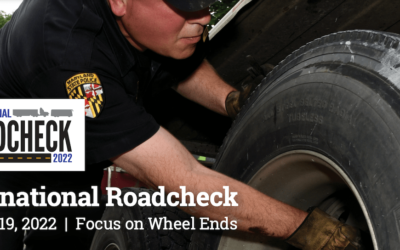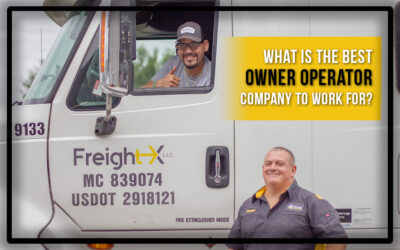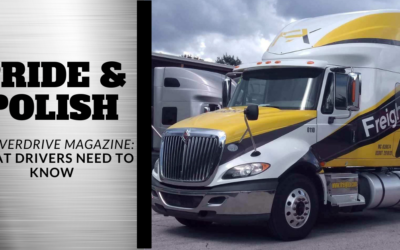For many ex-cops, joining the trucking industry is the perfect career change. As a trucker, you have solitude, weight off your back (literally), and some extra retirement income coming in.
Here at Freight X, one of our very own drivers, Robert Crouch, is a retired police officer. He started at age 18 in a military police position. He retired as a Lieutenant in 2001 and joined the Florida Highway Patrol for 11 more years before retiring again.
Today, Crouch is an owner operator for Freight X, and he wouldn’t trade the career change for anything. “It has been the perfect escape,” he says.
Learn more about why becoming a truck driver is one of the best decisions this former policeman ever made.
From Stressful Police Work to the Open Road
After being retired from his first career in law enforcement, Crouch turned on his computer and searched “policework job in Florida.”
The first result was for the Florida Highway Patrol.
On September 10, 2001, he officially joined the Patrol, and he never could’ve prepared himself for the shaky start of his first day.
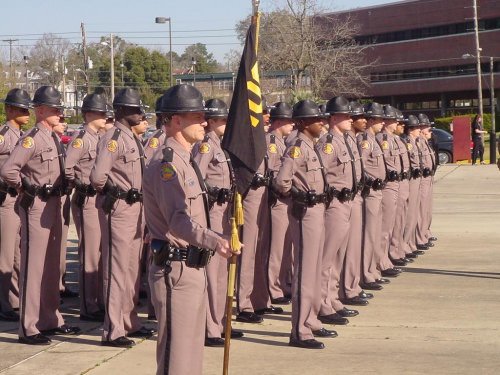
“They turned on the TV, and things were never the same,” he recalls.
The shock of 9/11 set the tone of Crouch’s time with the Highway Patrol, which was full of gruesome crash scenes and painful conversations with new widows, fatherless daughters, and parents who had to bear the pain of a dead child.
“I’d have to go to these people’s homes and tell them that their child was involved in a car crash and that they wouldn’t be coming home. They’d have a heart attack right in front of me,” he says.
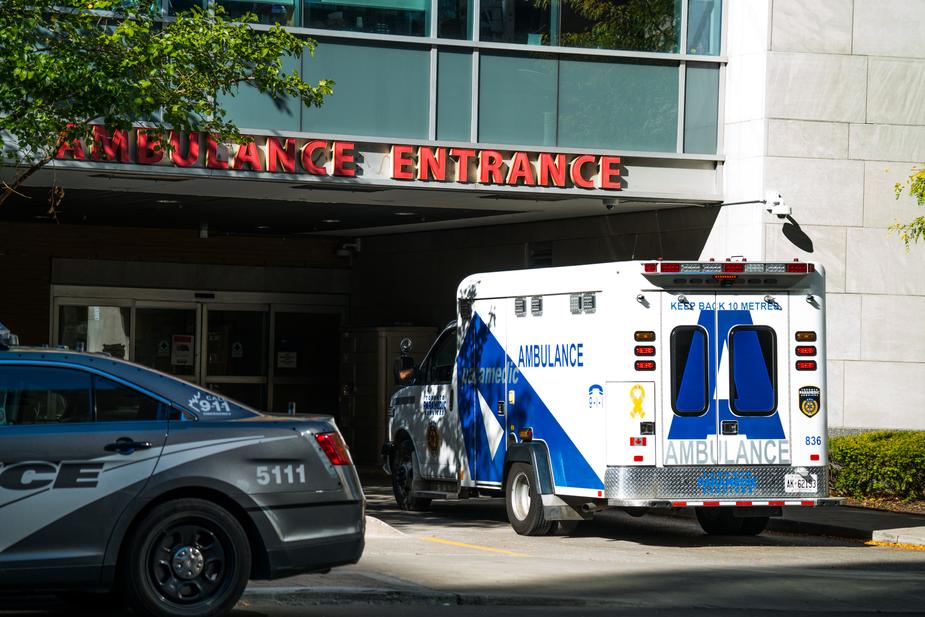
Crouch reported on and processed fatal scenes for years. He’d hear the last words of a loved one as they died on the scene and would report it back to the family.
“That’s all I did for years, and it was the worst job I ever had in law enforcement. I got so burned out from these fatal crashes – I didn’t want to talk or tell another person what to do,” he explains.
After Crouch retired from the Highway Patrol at age 55, he decided to get his CDL. He finished his first year and was able to become an owner operator (per insurance regulations). After he had some more experience, he heard about Freight X and joined the team hauling Yuengling from Tampa to Miami.
Trucking as Therapy For Ex-Cops
What Crouch discovered is that driving his truck was a form of therapy. “I had a little PTSD from my previous career. Yes, trucking gets lonely, but that’s the therapy!” he says.
Crouch explains that he was always the enemy – people would constantly be yelling at him, trying to beat him up because of the news he was delivering. Trucking has brought him the solitude he desperately needed along with the occasional interaction from someone who just says hello.
“People aren’t looking at me like I’m the Grim Reaper anymore. I like to talk to people again,” he says.
For Crouch, trucking has been the perfect escape.
Traveling the Country During Your Second Career
The statue of liberty, the Grand Canyon, Hollywood, the desert, the great plains – Crouch wanted to see it all. So he did.
“I drove everywhere, I slept in the desert… I did it all. These are opportunities I would’ve never had if I hadn’t become a truck driver,” says Crouch.

He has the freedom to go wherever he wants – while being paid, an unneeded but welcome perk, he says.
Ultimately, Crouch chose trucking for the solitude, and what better way to be alone and make yourself whole again than to see our beautiful country while you’re at it?
Getting Rid of the Police Gear
Sometimes, it’s the little things. Or in this case, the heavy things.
Law enforcement professionals have to haul around very heavy materials as part of their gear. You have a bulletproof vest along with everything that goes on the 20-pound belt, like handcuffs, radios, protection devices, firearms, etc.
“I developed some back problems,” says Crouch. “By not carrying that stuff around anymore, I feel so much better.”
Crouch is also relieved to be out of the small squad car, which he says was the pinnacle of distracted driving.
“You have a laptop basically in your lap, calls are being updated on the screen, you have to watch the updates, and you’re driving with lights and a siren on… it’s distracted driving on steroids. It’s crazy.”

At one point, Crouch recalls being told that they’d be adding a dash cam and a bodycam… “I just said that’s it. I can’t wear any more stuff! I’ll be a robot, you know?”
Another perk of being a truck driver? Less sweat!
“Those kevlar vests were so hot! You’d come home drenched at the end of the day. Trucking is the lowest stress job I can think of,” he says.
Crouch can talk to his friends all day on the phone, he can sleep in the back of his truck when he wants, and if doesn’t want to talk to anyone, he doesn’t have to.
“The greatest part of it all? I never have to tell a human being what they should be doing.”
Becoming an Owner Operator After Retiring from Law Enforcement
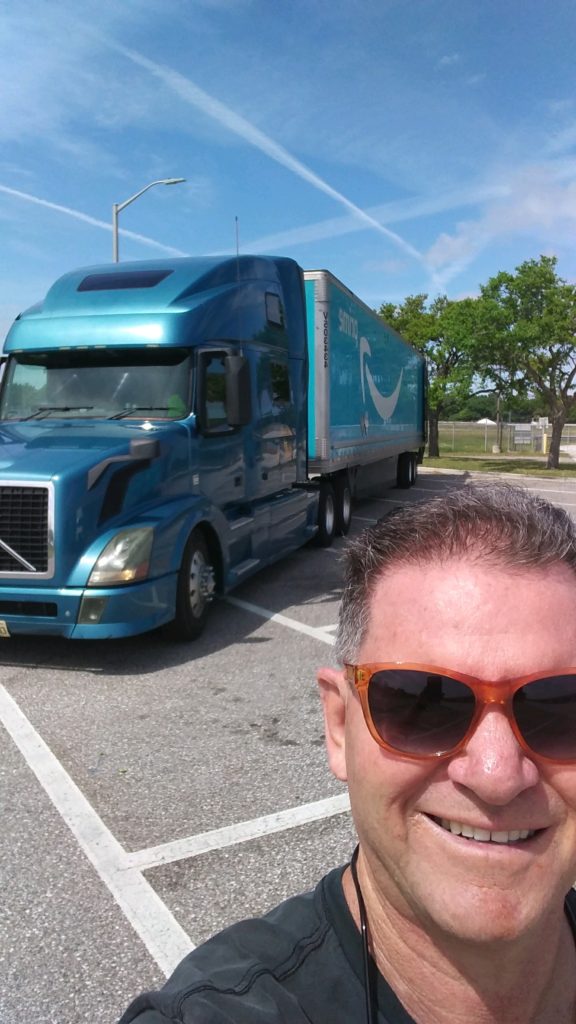
Crouch decided to become an owner operator, which means he owns his own business.
“Aaron and Freight X has been great with me. Not once have they said to me, “It’s time to get back to work!”
Crouch says that as an owner operator, he’s in control of his own destiny, which is one of the major draws of being a trucker.
The Finances of Going from Cop to Trucker
For Crouch, the money had nothing to do with his decision to become a truck driver – it was the therapy.
“I have two pensions coming in from both of those jobs. I’m set. My wife is set to draw Social Security this year… I don’t need to do this. But I am,” he says.
In addition to the therapeutic nature of being out on the open road, Crouch says that the job itself is fulfilling. He feels like a productive member of society as he delivers all of these goods that make people’s lives better.
For example, Crouch runs FEMA loads whenever he can. “When the hurricanes come through, I can deliver bottled water and MREs to people in need. I still feel fulfilled by this job, you know?”

Yes, he’s being paid for the work, but he also knows he’s doing good for people who really need it.
Escaping the Politics of Law Enforcement
If you’re in the police force or are retired from it, you know that you’re an extension of the government.
“You’re the scapegoat. If the city wants to cut their budget, they usually look at the police department. If they want more revenue, they tell you to write more tickets… police work has a lot of dynamics linked right into politics,” he says.
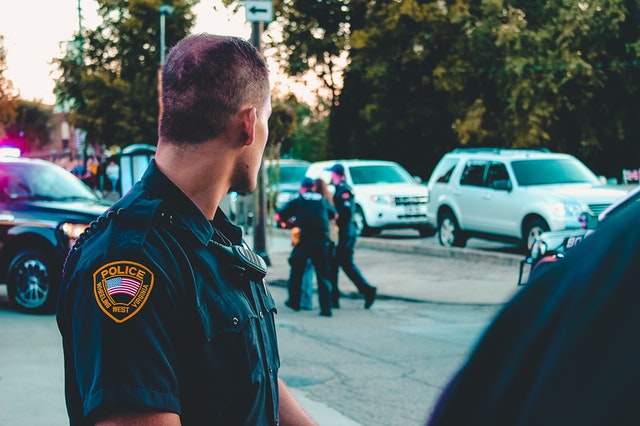
With driving, Crouch says all he has to worry about is his logs.
Hours of Service as a Truck Driver
Crouch says there aren’t really any rules in police work as far as hours of service goes.
“You can stay in that squad car as long as you want. I worked 16 hours a day often… I’d work a regular 8-hour shift, get a snack, and go right back to it for another 8 hours at night,” he says.
Crouch explains that these long hours are what a lot of the rookies are doing to make ends meet – even today.
Honestly, he can’t quite get used to the 10-hour break, because he’s not used to taking that much time off.
“I’ll watch my timer tick away and think, ‘Man, when do I get to start driving again?’”
In the end, every person has their own ambition after they retire from law enforcement.
Trucking isn’t one-size fits all.
“It’s a special person that goes back into trucking.” –Robert Crouch
You may also like:
![[Case Study] Becoming A Truck Driver as a Retired Police Officer [Case Study] Becoming A Truck Driver as a Retired Police Officer](https://ifreightx.com/wp-content/uploads/2019/03/WORDPRESS-becoming-a-truck-driver-as-retired-police-officer.jpg)
